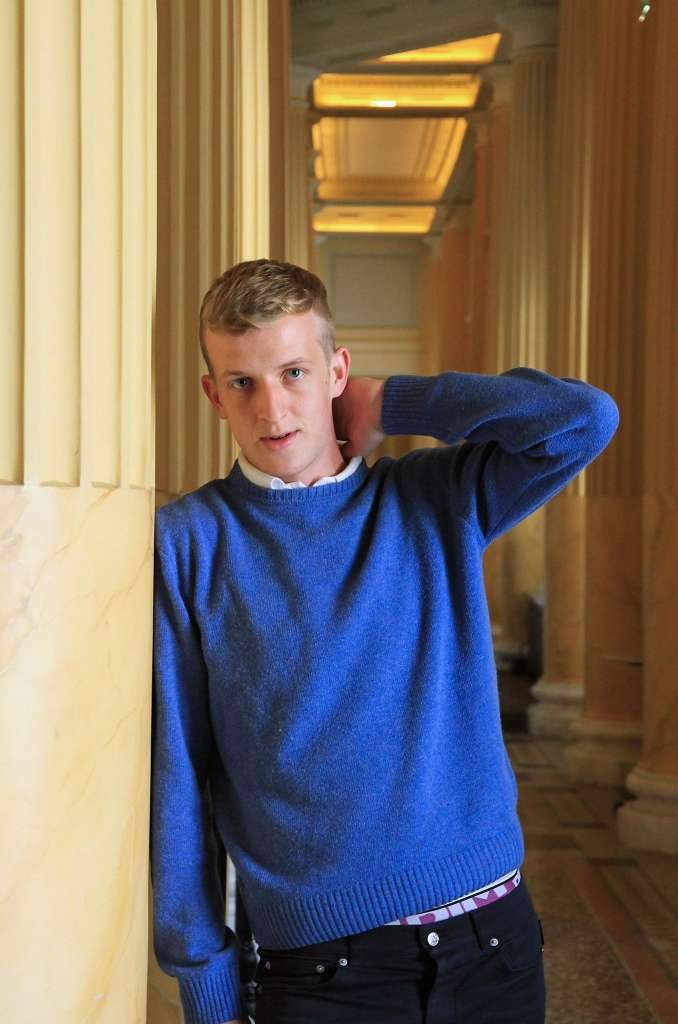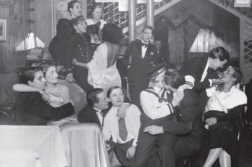 A Woman’s Battles and Transformations
A Woman’s Battles and Transformations
by Édouard Louis
Translated by Tash Aw
Farrar, Straus and Giroux
101 pages, $20.
ÉDOUARD LOUIS’ debut autofiction novel, The End of Eddy (2014), was an unexpected literary stunner, one that propelled the 22-year-old French author onto the international stage of LGBT letters. In unflinching detail, Louis described growing up gay in a poor French village. It was a world where “people never go anywhere,” where to be different in any way meant you were persecuted. He described his suffering—the family’s poverty, his father’s disgust at his effeminate son, the bullying he endured at school—in direct and unsparing prose that won him almost universal accolades. In his next two books, History of Violence (2016) and Who Killed My Father? (2018), the young writer continued to explore the theme of violence in all its forms—homophobia, class domination, racism.
In A Woman’s Battles and Transformations, deftly translated by Tash Aw, Louis turns his attention to his mother’s life, one “deformed and almost destroyed by misery and masculine violence.” Injustice is again his focus: the injustice of poverty, male aggression, and power; the injustice of all the “mechanisms” that crushed his mother’s life.
Those who have read Louis’ other books will be familiar with the setting of this story: an impoverished, working-class village in northeast France, a grim landscape of brick walls and “northern gray.” It is a milieu that breeds a culture of violence and desperation. The men drink and the women try to prevent their husbands from drinking. His family was, he says, just another one of “History’s losers.”

His mother’s story is a typical one here. At seventeen, she became pregnant. By the time she was twenty, she had two children and a husband she already hated. Shame and unhappiness gripped her. The only way out was to find another man, someone different from her previous husband. But all too quickly, the new husband—Louis’ father—“became just like all the others.” She stayed with him for twenty years, giving birth to two more children and enduring countless humiliations.
Meanwhile, Louis enters a good bourgeois lycée in another city. There he is “brutally confronted” by a world with which he had no previous experience, of people who read books, go to the theater and the opera, speak and dress and think in ways that are totally different from what he has known with his mother. It is a universe inhabited by those his mother had always dismissed as “les bourgeois.” Eager to be like them, young Édouard grows estranged from his mother; he’s ashamed to be seen with her. “When I was a child,” writes Louis in the second person, addressing his mother, “we felt ashamed together—of our house, of our poverty. Now I was ashamed of you, against you. Our shame had parted ways.”
For a while, his mother’s friendship with a woman named Angélique, a woman with a few years of university education and a desk job, makes her feel stronger, offering the possibility of escaping herself. But after a while, Angélique abandons their comradeship, resorting to the usual prejudice that prevents people from socializing outside their class. The mother is left alone and friendless once again, a heartbreaking moment in a small book full of heartbreaking moments.
Meanwhile, the divide between mother and son continues to deepen. It becomes impossible for Édouard and his mother to find anything to say to each other. He concludes that his mother’s life (she was barely forty at the time) is “already fixed forever.” The tedium and boredom she suffers—the glum and dogged trips to the grocery store, the father’s dismissive cruelty—this is all that will ever happen to her, he assumes.
But when the mother finally musters the courage to leave her husband, a reconciliation between her and her son begins. Louis is able to see her “with a certain benevolence” and to revive “fragments of tenderness amid the chaos of the past.” He comes to understand that in her quiet, modest, humble way, his mother has achieved a kind of liberation, a feminist pride.
Louis’ homosexuality, which takes a muted role in this book, nevertheless affords him an opportunity to pose important questions. His status as someone who, he says, was “never a man” actually draws him closer to his mother. He reflects that maybe, as a homosexual, he lives in a “netherland” where he can understand better than others who this woman, herself relegated to a limited sphere of inclusion, really is. “Yours is the story of a human being who fought for the right to exist as a woman, as opposed to the nonexistence imposed upon your life.” He might be speaking to himself.
At the end of this short but powerful book, Louis notes that it would be too simple to see his mother’s story as a tale about a “happy transformation.” She has still never traveled outside France. She relies on the man she lives with for money; she can’t make friends with the people in her new neighborhood. “And yet she is happy,” Louis asserts. “Perhaps the question is not what change means, but what happiness means. I haven’t found any answers, but I know that her current existence, what she has become, forces me to confront the question.”
A Woman’s Battles and Transformations strikes me as the least angry and the least politically charged of Louis’ four books. In revisiting the same material, I wondered if he had run out of something new to say. Early on in the book, Louis anticipates this possible criticism: “I want to write only the same story again and again, returning to it until it reveals fragments of its truth.” It’s that fierce, determined quest to get at the truth—even “fragments” of the truth—behind poverty, class, gender domination, racism, and homophobia that makes Édouard Louis an author well worth reading no matter how many times he hits the same notes.
Philip Gambone, a regular contributor to these pages, is the author of five books.






